The automobile is a complex piece of machinery to keep you moving safely on the roads. Among the different components working, Car fluids are vital in ensuring that the entire system functions as it should. Over time, simply checking the levels and ensuring that the right fluids are used in the right places can increase the life span of the automobile, enhance its functioning and eliminate expensive breakdowns.
In this blog, we are going to explore five car fluids that everyone should be familiar with and the reasons why they are very important to the health of a vehicle.
1. Transmission Fluid
It prevents worries of internal heat development from the friction associated with power transmission by the gear system. Therefore, the vehicle can change gears normally without any handles or even any slips within the complex device.
Purpose: Inadequate or contaminated transmission fluid may result in sluggish transmission response, grinding sound or even total transmission loss. It is different from engine oil as it is optional to change transmission fluids frequently. Even so, to protect the commitment of the transmission, proactive measures include regular inspection and timely change of the transmission fluid.
Changing Time- Car transmission fluid should be changed between 60,000 to 80,000 km.
2. Brake Fluid
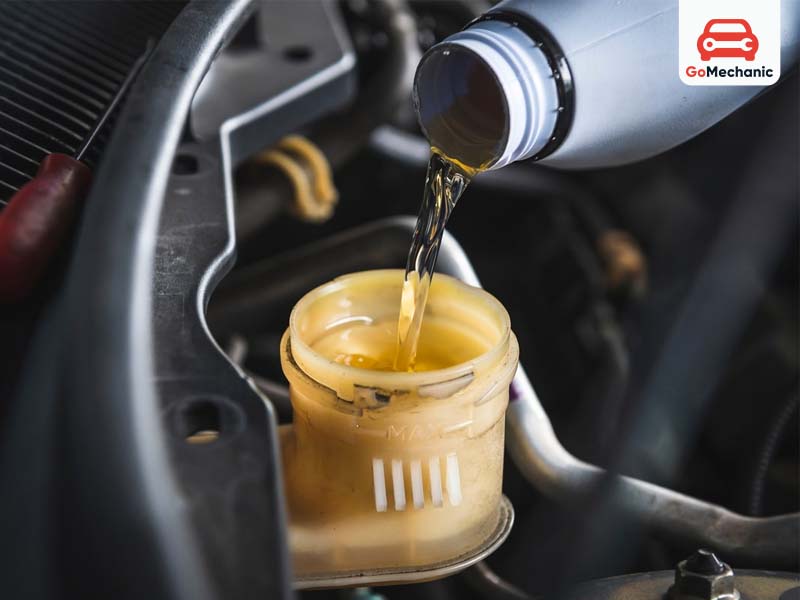
When we step on the brakes the vehicle comes to a rest. Brake fluid is the thing that does that, the way it does this it converts the force into pressure. This is possible due to the fact that liquids cannot be compressed.
Purpose: The system functions in a closed enclosure that operates at both high pressure and temperature, which is the reason why it is important to select the appropriate brake fluid and keep its condition at the desired level.
Changing time – The recommended period to change is about 2 years to 2.5 years.
3. Engine Oil
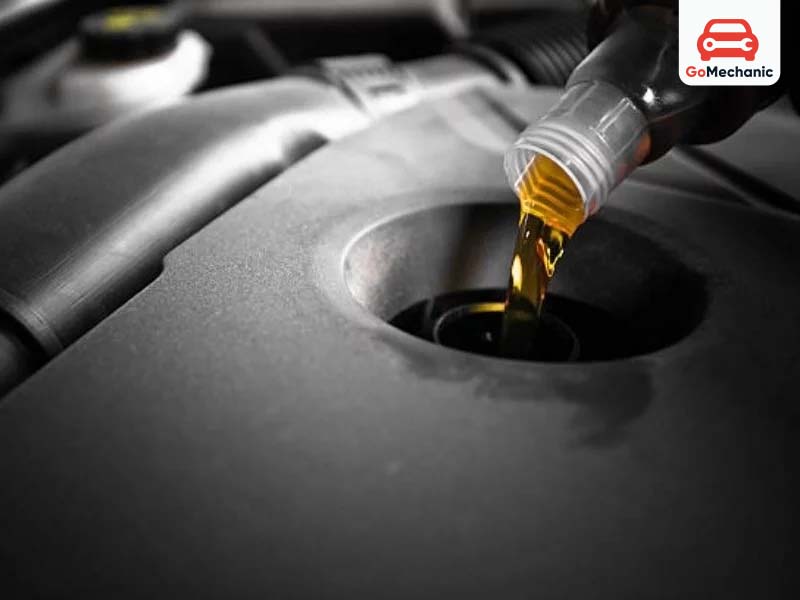
The main role of engine oil is to keep all the pistons and chambers moving smoothly by providing them with lubrication. It also helps to keep the engine from heating up and basically keeps a neutral temperature for the engine to work to its highest output.
Purpose: If an engine is low on oil or the oil has become dirty or stale, the engine will run the risk of complete destruction due to overheating or seizing. Moreover, a timely schedule for changing oil is crucial for the proper functioning of an engine. Failure to observe this may finally lead to failure of the engine, the repair costs of which are extremely costly.
Changing Time- The Engine Oil should be changed every 10,000 km or according to the car manual.
4. Windshield Fluid
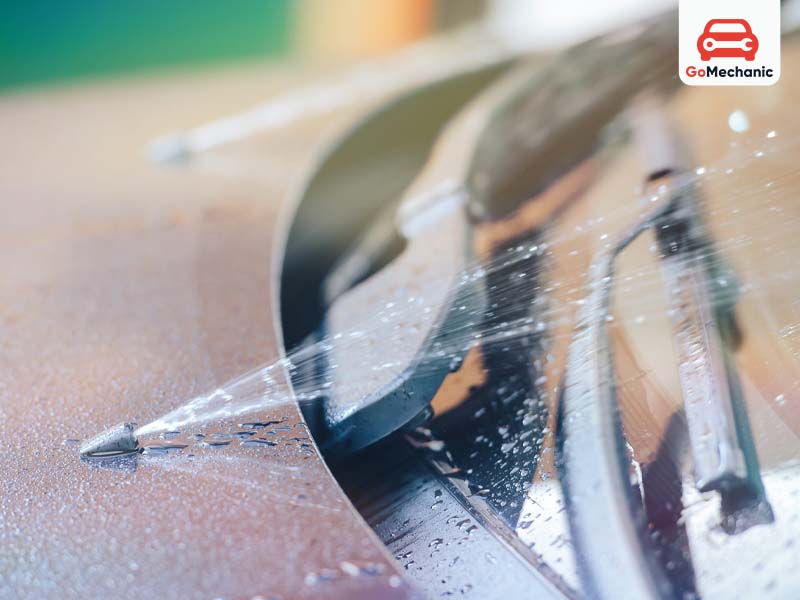
While windshield washer fluid is a Vital part of your car, it is something that isn’t really paid attention to. It helps us to use the car to its maximum efficiency by helping us to give a clear vision and also takes off drag from the car
Purpose: This helps to clear the vision slit so when the fluid is sprayed on the windshield and the car wipers are engaged it helps to clear the obstruction. It also helps to clear up excessive dirt such as that from road salt, mud, or even bird droppings which may smear your view.
Replacement Time – Totally Depends Upon Your Usage.
5. Coolant
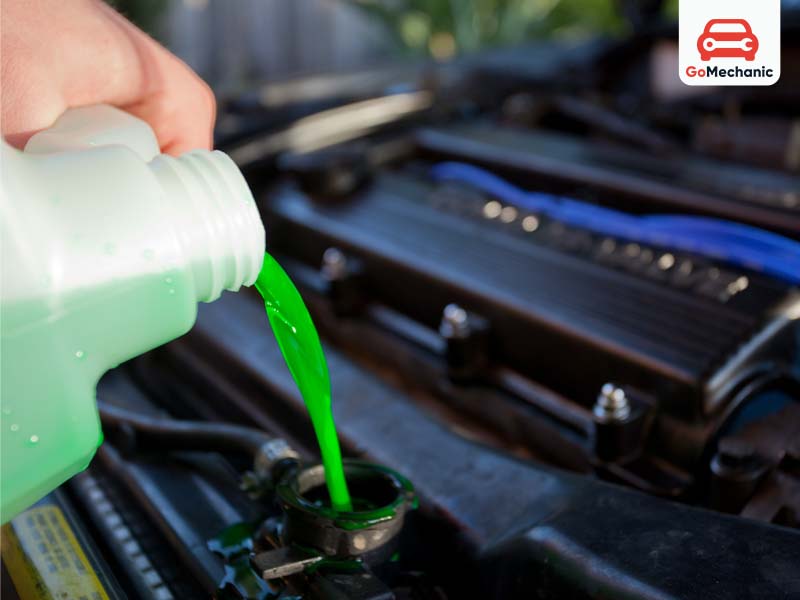
Coolant is the inner liquid temperature controlling mechanism of the engine, even preventing the engine from overheating in hot weather and freezing in low temperatures. It moves inside the engine, collecting heat before being moved that heat to the radiator and then cooled again.
Purpose: If an engine has no adequate coolant level an engine overheating situation can arise which may damage the engine, for instance, blown head gaskets, or worse, summer overheated warped cylinder heads.
Changing Time – The coolant fluid should be changed every 50,000 to 90,000 km.
Also Read: The Role of Coolant in Car Engine Health and How to Maintain
Importance of Car Fluids
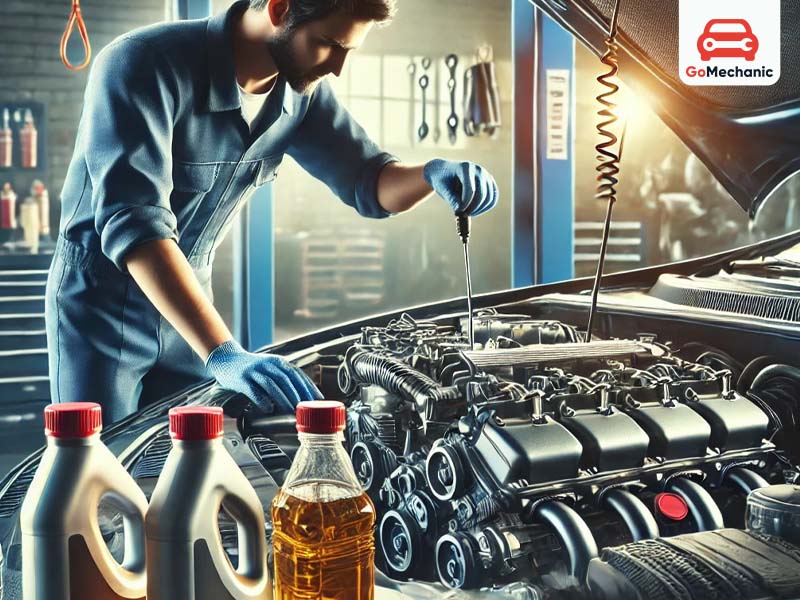
Keeping a check on your Car fluids is the simplest thing we can do but we still don’t pay attention to it and pay the price later. One should Always look up the fluid levels, adhere to your manufacturer’s service intervals, and try to seek the help of an expert mechanic whenever you suspect something is off. Thus, if you pay proper attention to these lubricants and coolants, you can enjoy driving your car for ages.
Check out: How GoMechanic Car Service Can Transform Your Vehicle Servicing Experience!
FAQs [ Frequently Asked Questions]
Q-1 What are the 7 fluids in a car?
ANS- Steering fluid, Windshield fluid, Transmission fluid, Engine oil, Coolant, Brake fluid, and Air conditioning coolant.
Q-2 What are the different Car Fluid colours?
Engine oil – White wine colour, transmission fluid is red colour, coolant – is green, orange, and pink, brake fluid and steering fluid both are white in colour.





